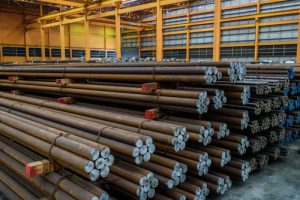
U.S. Rep. Jackie Walorski (R-IN) led 39 fellow members of the U.S. House of Representatives in requesting that the U.S. Department of Commerce simplify its procedures for excluding products from the recently announced tariffs on steel and aluminum product imports.
“We appreciate that, in response to Member and constituent requests, you have implemented a product exclusion process for the Section 232 steel and aluminum tariffs,” the members wrote in a May 7 letter to U.S. Commerce Secretary Wilbur Ross. “However, we are concerned that over a month after the process began, the review process is moving far too slowly and that it places a significant burden on manufacturers, especially small businesses.”
The lawmakers urged Ross to make needed changes to the process, improve how it functions and provide relief to small businesses impacted by the tariffs.
Among those joining Rep. Walorski in signing the bipartisan letter were U.S. Reps. Carlos Curbelo (R-FL), Bill Huizenga (R-MI), Mike Bishop (R-MI), Peter Roskam (R-IL), Fred Upton (R-MI), Brian Fitzpatrick (R-PA), Susan Brooks (R-IN), Darin LaHood (R-IL), Lynn Jenkins (R-KS), Brad Wenstrup (R-OH), John Moolenaar (R-MI), Billy Long (R-MO), Sam Graves (R-MO) and Ron Kind (D-WI).
On March 8, President Donald Trump imposed tariffs of 25 percent on steel and 10 percent on aluminum imports under Section 232 national security provisions that went into effect on March 23. On March 19, as directed by the president, the Commerce Department published a notice of interim rules for requesting exclusions from the new Section 232 tariffs on imported steel and aluminum.
Comments on the interim rules are due by May 18. In the meantime, the announced rules are in effect and provide instructions on how to apply for exclusions from the tariffs. The application process is the same for both steel and aluminum products.
The lawmakers outlined several issues they see with the process. For instance, they noted in their letter that as of May 4, the Commerce Department has posted the determining results for 1,572 steel and 129 aluminum exclusion applications. “That is a far too slow of a pace given the volume and the fact that this process is over a month and a half old,” they wrote.
The members suggested several solutions to help speed up the review process, including that the department extend relief retroactive to the date of submission if the application was considered complete when it was submitted and consider the concept of grandfathering exclusion requests; simplify the application process for manufacturers, prevent duplicative requests, and reduce the time it takes the Bureau of Industry and Security (BIS) to review and vet applications; and clear up the “contradictory and confusing requests” that exist in both the steel and aluminum forms.
Another solution the members provided was to allow trade associations to apply for exclusions for an industry, “again in order to save both manufacturers (particularly small businesses that otherwise might not be able to afford to apply) the time and money spent filing and BIS the time spent reviewing duplicative applications,” the lawmakers wrote.
The lawmakers wrote Secretary Ross that they “stand committed” to working with him and President Trump on developing a more targeted approach that helps the nation avoid ongoing negative impacts.
“However, we believe that significant improvements to the exclusion process are still needed to prevent unnecessary duplication, reduce the burden on small businesses, and provide certainty and relief,” they wrote.



